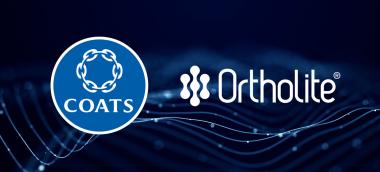Coats Completes Acquisition of OrthoLite, Strengthening Footwear Business
Coats Group plc, a world-leading Tier 2 supplier of critical components to the apparel and footwear industries, announced has completed its acquisition of OrthoLite, a global market leader in footwear materials and the number one brand in premium insoles.
The acquisition marks a major milestone in the company’s long-term growth plans and strengthens its existing footwear division through expansion into the attractive, high-growth premium insole segment. Both companies already have a similar customer base, a complementary global footprint and a commitment to industry-leading innovation and sustainability practices.
Coats first announced its intention to purchase OrthoLite, and its sustainable materials brand, Cirql, on July 16, 2025, for an initial enterprise value of $770 million. Following previous footwear acquisitions, this is the latest step in the Company’s ambition to shape the future of the global apparel and footwear supply chain through innovation, sustainability, and digital technologies that improve quality, efficiency and performance.
To better reflect its increased scale and expanded footwear capabilities, Coats will also move from a three-division organisational structure, previously Apparel, Footwear and Performance Materials, toward a simplified two division structure focused on Apparel and Footwear. Existing Performance Materials businesses will be folded into the two new divisions.
The divisions will be led by Pasquale Abruzzese, Footwear CEO and Group Chief Operating Officer, and Adrian Elliott, Apparel CEO and Group Chief Commercial Officer. Glenn Barrett will continue to lead the OrthoLite business. External reporting will transition to this structure for the financial year ending December 2026.
Coats






























